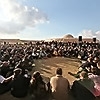 Rabash, “According to What Is Explained Concerning ‘Love Thy Friend as Thyself’”: Our sages said: “Disperse the wicked; better for them and better for the world.” In other words, it is better that they do not exist. However, it is the opposite with the righteous: “Assemble the righteous; better for them and better for the world.”
Rabash, “According to What Is Explained Concerning ‘Love Thy Friend as Thyself’”: Our sages said: “Disperse the wicked; better for them and better for the world.” In other words, it is better that they do not exist. However, it is the opposite with the righteous: “Assemble the righteous; better for them and better for the world.”
Initially, there were no righteous. The righteous are our corrected qualities. At every level when we enter a new degree, the old righteous fall, and the new sinners rise, and we turn them into righteous again.
“What is the meaning of “righteous”? It is those who want to keep the rule, “Love thy friend as thyself.” Their sole intention is to exit self-love and assume a different nature of love of others. And although it is a Mitzva [commandment] that should be kept, and that one can force oneself to keep, love is still something that is given to the heart, and the heart disagrees with it by nature. What, then, can one do to make love of others touch the heart?”
It is impossible. Only the upper Light can make such a correction for us. It is not within our power since it requires two forces: one that is uncorrected and the other that is the power of correction, which we do not have. We do not even know exactly how or what should be corrected.
This is why we were given the 612 Mitzvot: they have the power to induce a sensation in the heart. However, since it is against nature, that sensation is too small to have the ability to keep love of friends de facto, even though one has a need for it. Hence, now he must seek advice on how to actually implement it.
The advice for one to be able to increase his strength in the rule, “Love thy friend,” is by love of friends.
This speaks about the fact that there is bestowal and there is also reception for the sake of bestowal.
Question: Are the work in the tens, the workshops, and the studying all directed at only one thing: to attract the Light that reforms?
Answer: Yes, we do not need anything else. The Torah is the upper Light that corrects our egoistic desires and turns them into altruistic. The correction of an egoistic intention into an altruistic one is called observing a commandment.
[235841]
From KabTV’s “The Last Generation” 4/18/18
[235841]
From KabTV’s “The Last Generation” 4/18/18

No comments:
Post a Comment